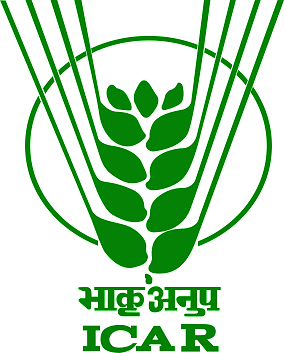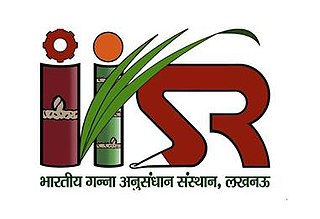
Indian Veterinary Research Institute (IVRI) is located at Izatnagar, Bareilly in Uttar Pradesh state. It is an advanced research facility in the field of veterinary medicine and allied branches. It has regional campuses at Mukteshwar, Bangalore, Palampur, Pune, Kolkata and Srinagar.

The Indian Council of Agricultural Research (ICAR) is an autonomous body responsible for co-ordinating agricultural education and research in India. It reports to the Department of Agricultural Research and Education, Ministry of Agriculture. The Union Minister of Agriculture serves as its president. It is the largest network of agricultural research and education institutes in the world.
Education in West Bengal is provided by both the public sector as well as the private sector. Health Sciences, University of North Bengal and University of Calcutta.

The Central Arid Zone Research Institute (CAZRI) is one of the biggest research institutes of the Indian Council of Agricultural Research (ICAR), an autonomous organization working under the aegis of the Department of Agriculture Research and Education (DARE) of the Ministry of Agriculture and Farmers Welfare of Government of India. CAZRI has the distinction of being one of the first institutes in the world exclusively devoted to arid zone research and development. The institute made a humble beginning in 1952 when Government of India initiated Desert Afforestation Research Station at Jodhpur to carry out research on sand dune stabilization and for establishment of shelter belt plantations to arrest wind erosion. It was reorganized as Desert Afforestation and Soil Conservation Station in 1957 and finally in its present form Central Arid Zone Research Institute in 1959 on recommendation of the UNESCO (United Nations Educational, Scientific and Cultural Organization) expert, Prof. C.S. Christian of the Commonwealth Scientific and Industrial Research Organisation (CSIRO), Australia. In 1966, the institute was brought under the administrative control of Indian Council of Agricultural Research (ICAR), New Delhi.

The Ministry of Textiles is an Indian government national agency responsible for the formulation of policy, planning, development, export promotion and regulation of the textile industry in India. This includes all natural, artificial, and cellulosic fibers that go into the making of textiles, clothing and Handicrafts.
Southern Regional Research Centre (SRRC) is a regional centre of the Central Sheep & Wool Research Institute (CSWRI), a premier Institution of the Indian Council of Agricultural Research (I.C.A.R), New Delhi. The SRRC was founded on 16 November 1965 and has been active for over 45 years at Mannavanur. The centre was created in 1965 by former Agriculture Minister, Shri C. Subramaniam. It is located 30 km away from Kodaikanal. This centre is the animal science research centre under ICAR for both Tamil Nadu and Kerala states. It is located in Mannavanur village, Dindigul district in the Indian state of Tamil Naduon 1,340 acres (5.4 km2) of rolling grassland at altitude 2,000 metres (6,600 ft).
P. Ananda Kumar is an Indian plant molecular biologist and biotechnologist.
Agricultural Universities (AUs) are mostly public universities in India that are engaged in teaching, research and extension in agriculture and related disciplines. In India, agricultural education has evolved into a large and distinct domain, often separately from other areas of higher education. Many of these universities are member of a registered society, the Indian Agricultural Universities Association. Indian Council of Agricultural Research is the main regulatory authority of agricultural education in India, while the disciplines of veterinary medicine and forestry are regulated by the Veterinary Council of India and Indian Council of Forestry Research and Education respectively. Based on the statutes establishing these universities, agricultural universities in India can be grouped into various types.
Agriculture Research Services (ARS) is the Natural Resource services under the Indian Council of Agricultural Research (ICAR), organization under the Department of Agricultural Research and Education, Ministry of Agriculture, Government of India.
The ICAR-Central Citrus Research Institute is an institute for research in citrus fruits and horticulture at Nagpur, Maharashtra. It is located at Nagpur in the state of Maharashtra. The city is famous for mandarin oranges. The centre provides for research in the field of citrus agriculture; it also offers consultancy towards the field. It is a research institute under the Indian Council of Agricultural Research (ICAR) which is an autonomous body under the Ministry of Agriculture of the Indian Government.

The Central Institute of Fisheries Technology (CIFT) is an autonomous organization established by the government of India, engaged in research related to fishing and fish processing in the country. The institute has its headquarters in Matsyapuri, Willingdon Island, Kochi and is a subsidiary of Indian Council of Agricultural Research (ICAR), New Delhi, under the Ministry of Agriculture, India.

The Central Institute of Agricultural Engineering (CIAE) is a higher seat of learning, research and development in the field of agricultural engineering, situated in the lake city of Bhopal, Madhya Pradesh, India. It is an autonomous body, an Indian Council of Agricultural Research subsidiary, under the Ministry of Agriculture & Farmer's Welfare, Government of India.

The Indian Institute of Sugarcane Research is an autonomous institute of higher learning, under the umbrella of Indian Council of Agricultural Research (ICAR) by the Ministry of Agriculture, Government of India for advanced research in sugar cane agriculture. The Institute is located on Raibareli Road, Dilkusha in Lucknow, Uttar Pradesh, India. While, The Central Sugarcane Research Institute established in 1912 is located in Coimbatore, Tamil Nadu, India. It works also under the Indian Council of Agricultural Research.

Central Inland Fisheries Research Institute (CIFRI) is an autonomous research institute dedicated to inland fisheries management and augmentation under the Indian Council of Agricultural Research of Government of India.

National Institute of Natural Fibre Engineering and Technology (NINFET), formerly National Institute of Research on Jute and Allied Fibre Technology (NIRJAFT), is an institute under Indian Council of Agricultural Research, Government of India and dedicated to the research of jute and allied fibres leading to the diversified use and industrial growth.
Trilochan Mohapatra is an Indian biotechnologist, geneticist, former government secretary of the Department of Agricultural Research and Education (DARE) and former director general of the Indian Council of Agricultural Research. Known for his studies in the fields of molecular genetics and genomics, Mohapatra is an elected fellow of the National Academy of Sciences, India, the National Academy of Agricultural Sciences, the Indian National Science Academy and the Indian Society of Genetics and Plant Breeding. The Department of Biotechnology of the Government of India awarded him the National Bioscience Award for Career Development, one of the highest Indian science awards, for his contributions to biosciences in 2003.
Subbanna Ayyappan is an Indian aquaculture scientist hailing from the Karnataka State who has held several key positions in various Govt organisations related to agricultural science. He was the Director-General of Indian Council of Agricultural Research (ICAR) and Secretary to Government, Department of Agricultural Research and Education (DARE) during Jan 2010 – Feb 2016. He was also the Chancellor of Central Agricultural University, Manipur. He was instrumental in bringing about the Blue Revolution in India. He was the first non-crop scientist to head the ICAR.









